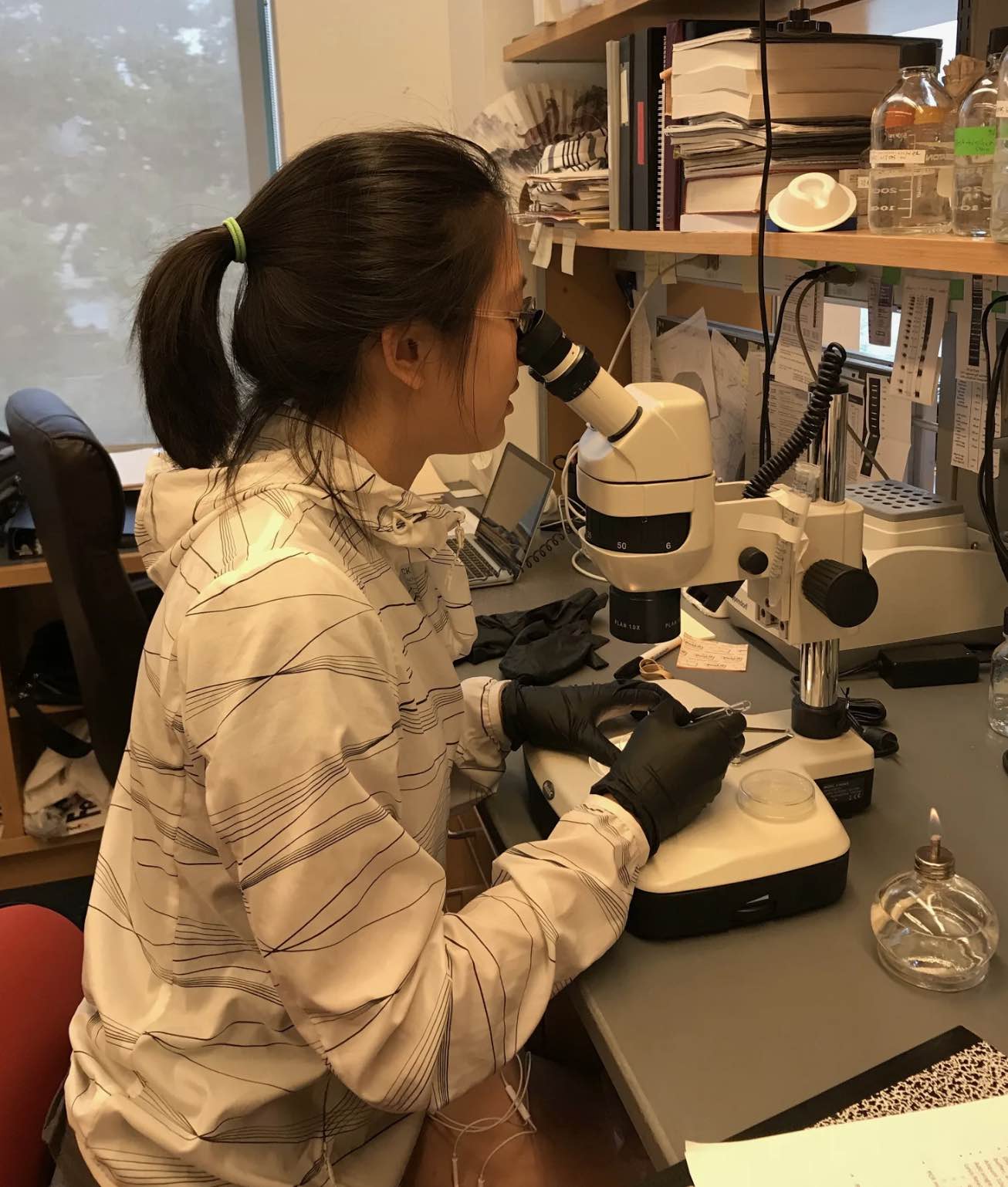On the Inside Looking Out : My Time Spent at The Rockefeller University

Editor’s Note: This post was originally published in Fall 2018, by SSRP ’18 student, Serena Zhang. This rereleased post explores the lessons learned—both interpersonally and professionally—during her time in the Tavazoie Lab. Among these topics, Serena reflects on her experience “embracing uncertainty” and realizing her place in the lab. As the SSRP hit its halfway point, this is a wonderful chance to reflect in similar (or different!) experience in the laboratory.
Stepping onto the Rockefeller University campus for the second time (with my first being the interview), I was immediately swept away, from the arching gates and the marble pathways to the colorful flowers and sculptures and just the feeling in the air, I could sense that the place was special. However, after walking into the bustling Tavazoie lab full of equipment, I felt a bit overwhelmed. I still could not believe that I was interning at Rockefeller, and doubts crept into my head – what if they made a mistake letting me into this program? Will I be wasting my mentor’s time if I don’t understand what’s going on? How can I be a productive member of my lab?
As these thoughts swirled through my head I turned to my readings to distract myself. Soon after, one of my new colleagues, a very friendly postdoc, struck up a conversation with me. I don’t quite remember what we chatted about, but the conversation ended up lasting an hour. Afterward, some of the other people in the lab, including my lab head, struck up some shorter conversations with me as well, both casual greetings and discussions about the research being done in the lab. After all those conversations, I hadn’t exactly gotten my reading done, but I immediately felt a sense of calm and inclusion wash over me as I realized how easily and happily these my new lab mates had welcomed me into their community. Needless to say, the first day gave me a glimpse into the strong connections I could build and left me extremely excited about the research I would be doing, the classes I would be taking, and everything else that was yet to come.
I was finally ready to do the lab work. Embarrassingly struggling with my very first task, pipetting, briefly brought back doubts to my mind about my abilities, but these doubts faded quickly when my mentor smiled and patiently demonstrated pipetting, then sat me down later in the week to fully explain the project I would be working on with him. Even though I hadn’t really done much lab work yet except practice pipetting, I was already feeling proud because I was seemingly understanding the complicated project I was being tasked with.

A microscopic worm known as a Caenorhabditis elegans
The project that I worked on studies the function of two noncoding RNAs (RNAs that don’t code for protein) in the microscopic worm Caenorhabditis elegans. These RNAs have been found to bind to a worm gene, CEY-1, which is very similar to a human gene that has been shown to promote breast cancer, so we wanted to determine the RNAs’ functions to try and determine the human gene’s mechanism of promoting breast cancer. To do this, we initially tried using CRISPR/Cas9 genome editing technology to completely delete the RNAs in these worms. After multiple attempts and problem-solving sessions with my mentor, we decided to try another approach: RNA interference (RNAi), which theoretically should knockdown the RNAs of interest instead of knocking them out, as CRISPR would have.
Due to my short stay in the lab, we were unable to fully complete one round of RNAi. As I was reminded multiple times, science researchers spend years and sometimes decades working on a single project and I certainly couldn’t say my time in the lab was a failure because I had learned so much new information, practiced old lab techniques and learned new ones, experienced what it was like to be a science researcher, and practiced my problem-solving and critical-thinking skills, among many others.

I learned some other extremely valuable things, the first being the fact that I need to embrace uncertainty if I want to do more scientific research in the future. Science research is all about uncertainty. You never know what the results will look like or if the experiment will even work, and so it is like an endless road that keeps splitting – you head down one path without knowing if it’s “right” or “wrong” and suddenly that path just keeps splitting into different possibilities and experiments. I also learned that mistakes are inevitable – everybody makes them on practically a weekly level. I jokingly asked other SSRP participants and found that people were very eager to share their mistake horror stories, from pipetting 20 mL instead of 20 µl to letting the DNA run off the gel in the wrong direction.
I learned that science is a human endeavor and always will be. There are hardworking humans behind every single research paper and finding, and they are constantly experiencing failures and problem-solving. This summer really was one of the first times that I noticed this human aspect, even though I was working alongside so many brilliant scientists.









